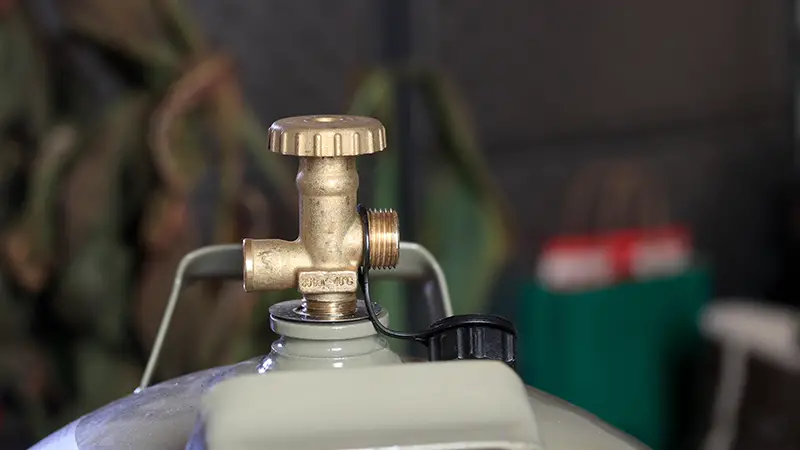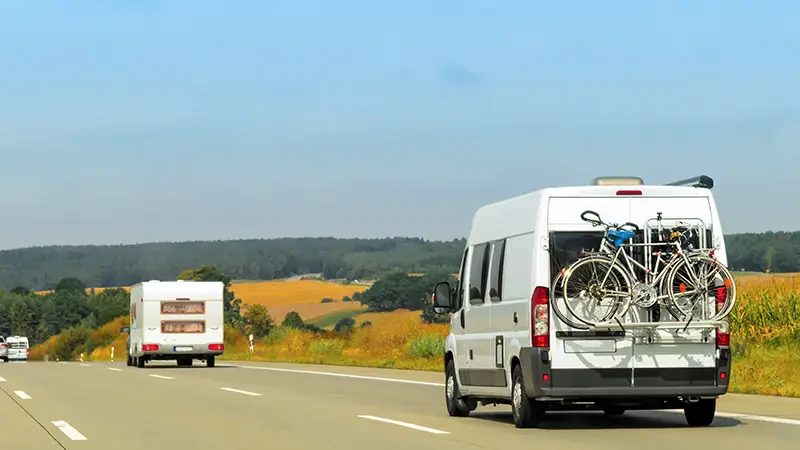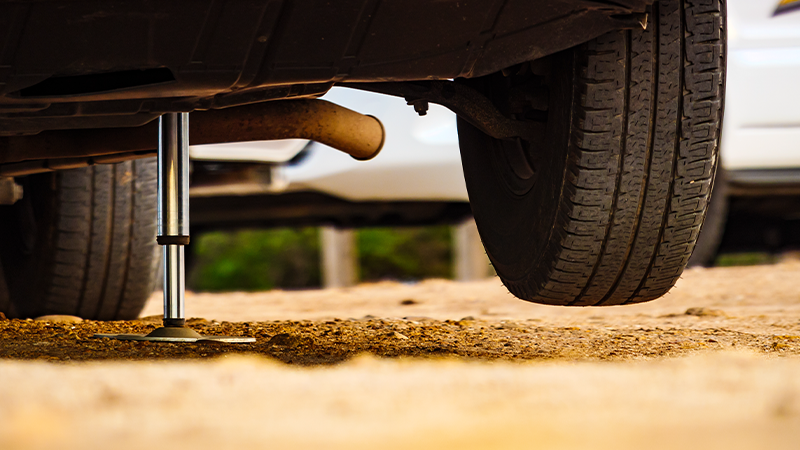Gas in the mobile home - the most important points that should be considered

Is gas testing mandatory for motorhomes?
Yes, the gas test for motor homes is mandatory in Germany and must be performed regularly. The gas test is required every two years.
According to the German Ordinance on Industrial Safety and Health (BetrSichV), the operator of a motor home is responsible for ensuring that the gas system is tested at regular intervals by recognized testing centers such as DEKRA, TÜV or certified workshops. Of course, this only applies to motorhomes in which a gas system is also installed.
Gas testing is necessary to ensure the safety of the motorhome's occupants and to prevent gas leaks or other hazards.
How much does a gas inspection usually cost?
The cost of a gas test can vary depending on the region and the testing agency. As a rule, the price of a gas test is between 50 and 100 euros. However, the price may be higher if additional work is required, such as the dismantling of fairings or the gas system. Ask the selected testing station in advance for the exact costs.
What is done during a gas test?
During a gas test, the gas system of the motorhome is checked for safety and functionality. Here, the entire gas system, consisting of gas cylinder(s), gas regulator, gas lines, gas distributor and gas appliances such as stove, refrigerator and heater, if applicable, is inspected for any defects or damage.
An essential part of the inspection is the pressure test of the gas system. This is to ensure that the pressure meets the specified standards. Particular attention is paid to whether there are any leaks where pressure is escaping or whether components should be replaced due to their age.
After the test, the motor home receives either a test sticker or a test report stating that the gas system is in order or which defects need to be remedied.
What does leaking gas smell like?
Leaking gas has a characteristic odor. It is a foul or sulfurous odor reminiscent of rotten eggs. The odor is usually added artificially to alert you to a gas leak and that caution should be exercised.
If you notice this odor, you should immediately ventilate, turn off all sources of gas and move away from the area. It is important not to create sparks or flames near the leaking gas, as this can cause an explosion.
How useful are gas detectors in the motorhome?
Gas detectors in RVs can be very helpful in minimizing the risk of gas poisoning or explosion. They usually work via sensors that measure the presence of gases such as propane or butane in the air.
When the gas detector detects an elevated concentration of gases in the air, it emits an audible and visual signal to alert the occupants of the RV to exit the vehicle and move to a safe location.
Have gas detectors serviced and tested regularly to ensure they are working properly.
What types of gas alarms are available for RVs?
There are different types of gas alarms for RVs, depending on the gas they are designed to detect. Here are some of the most common types of gas alarms for RVs:
- carbon monoxide alarms: This type of detector detects carbon monoxide, a colorless and odorless gas produced by incomplete combustion of combustible materials. Carbon monoxide is very toxic and can quickly become fatal.
- propane and butane gas alarms: This type of warning detector detects propane and butane gas, which are commonly used in RVs as fuel for cook stoves and heaters. These gases are heavier than air and can collect in low-lying areas and become a hazard.
- methane gas alarms: Methane is a colorless and odorless gas often found in natural gas and biogas. A methane gas detector can warn of a potential hazard from leaking pipes or faulty appliances that use natural gas or biogas.
- smoke detectors: Smoke detectors detect smoke caused by fires. Since a fire can also release gas, it is important to install smoke detectors in RVs.
- narcotic gas detectors: Narcotic gas detectors are warning detectors for RVs that are specially designed to detect and warn of narcotic gases.
Many devices detect multiple gases.
Here is a list of the generally best rated gas detectors for motorhomes
- thitronik Gas-pro III (Warns of : propane, butane, narcotic gas, carbon monoxide)
- Linnepe Trigas Alarm (Warns of : propane, butane, anesthetic gas, narcotic gas)
- Caratec Electronics CEA100G (Warns of : propane, butane, narcotic gas, carbon monoxide)
Is it compulsory to have a fire extinguisher in the motorhome?
Yes, in Germany it is mandatory to have a fire extinguisher in the motorhome. The exact regulations may vary depending on the type of vehicle and the country of registration.
As a rule, however, the fire extinguisher must comply with European standards and be located near the driver's seat so that it can be reached quickly in an emergency.
It is also advisable to regularly check the functionality of the fire extinguisher and to maintain or replace it if necessary.
Should the gas bottle always be turned off when the motorhome is not in use?
Yes, it is recommended to always turn off the gas bottle when the RV is not in use. This will prevent accidental gas leaks and a potential safety hazard.
Share article

RV overloaded - very expensive and dangerous
An overloaded motorhome can not only lead to high costs, but also endanger your safety and that of all other road users
